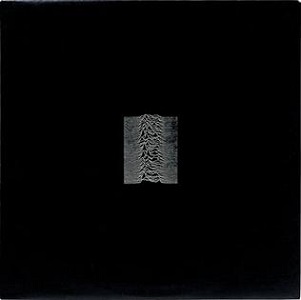Oddly enough, I don’t recall the first time I heard “Love Will Tear Us Apart”. I quickly got used to hearing it though, a reliable floor-filler back when I was enjoying the scraps of goth you could hear at the local alternative nightclub I was sneaking into at just sixteen. Joy Division, “She’s In Parties” by Bauhaus, “Lucretia, My Reflection” by the Sisters and even “Release The Bats” by The Birthday Party. One after another, a solid lump of goth I enjoyed early in the evening to sustain me through a few hours of Nineties pop-punk and rap metal and inadvisable cocktails.
I have much firmer memories of scouring the internet – with Netscape Navigator no less! – for guides to goth, this mysterious and enticing culture I’d discovered having graduated through various levels of over-produced metal as a teenager. I’ve always been passionate about tracing back to first causes, and so many of those early websites cited the short-lived yet significant Joy Division as a progenitor of all things goth.

Weirdly, my first experience of Joy Division was “An Ideal For Living”, the first EP, rather than “Unknown Pleasures”, and its raw punk nature quite put me off. I remember listening to “No Love Lost” and being frightened out of my naïve wits!
The first album soon made its way to me, and it felt like a key in a lock. In particular, I fell for Hannett’s production – I’d never ever heard music that had such crackling depth to it, every instrument seeming to broadcast from a cold impervious void that delivered an electric, sparse sound. “Day of the Lords” was a maddeningly catchy dirge crammed with menace and meaning. “Shadowplay” was the song to rip up the dancefloor too, far more intense to me than the more familiar “She’s Lost Control” or even “Transmission”, the debut single from 1979.
In time, as I grew and encountered more goth music, Eldritch and the Sisters supplanted Joy Division at the pinnacle of my interests. Their imagery, attitudes and not to mention their repertoire all seemed like an evolution of every foundation that Curtis, Hook, Sumner and Morris had laid, although the Sisters couldn’t imitate the indescribable authenticity of Joy Division. I cannot hear “New Dawn Fades” without getting goose-pimples and a stab of delicious melancholia straight to my heart.

Joy Division provided the goth scene, and the world, with the gorgeous and disturbing melding of monotonous drumming, aggressive bass, jangling guitars and that definitive low male baritone, reciting despondent lyrics that has become a hallmark of alternative music.
From crass commercialism of their recognizable album cover onto every department store shelf, to a hundred hundred imitators and appreciators of varying quality playing the world over, Joy Division’s brief career had an impact beyond comparison. I am confident their eightieth anniversary will be celebrated with as much recognition… assuming the world has not fully slipped into that eternal dark night of isolation.